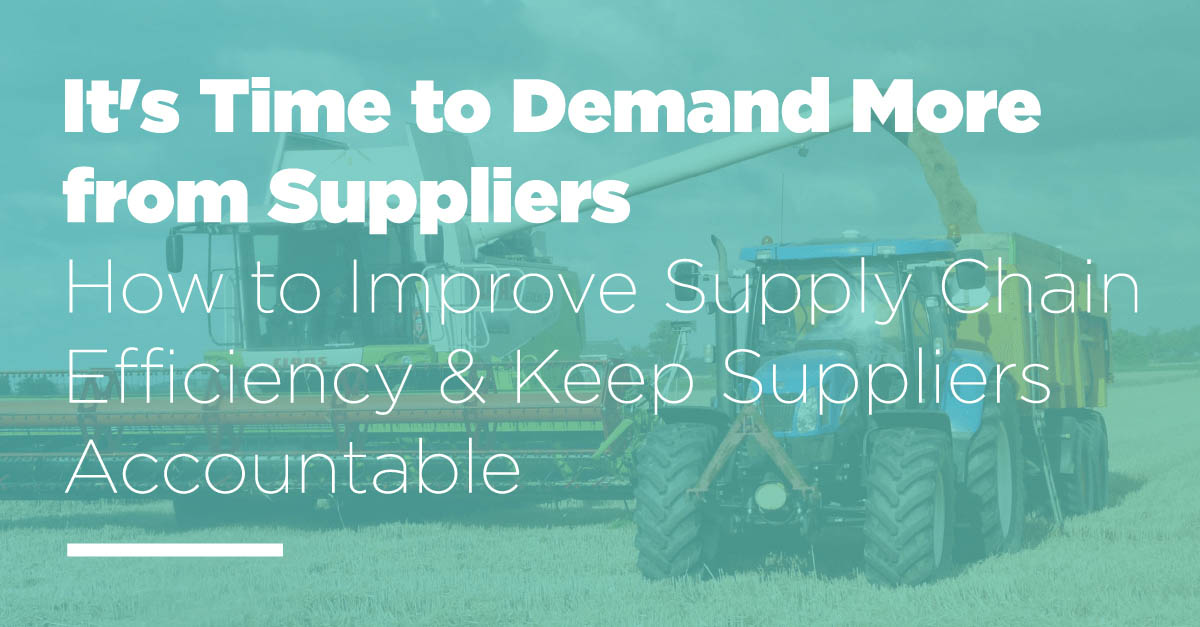How to Improve Supply Chain Efficiency & Keep Suppliers Accountable
In the face of rising consumer demand, the global supply chain continues to grow and evolve as new suppliers and retailers enter the market. Manufacturers may depend on dozens to hundreds of different suppliers, and each material comes with its own set of quality management procedures. Keeping track of all your suppliers and maintaining quality assurance can be an overwhelming task for supply chain quality managers, especially if you’re still using outdated technology like pen and paper or spreadsheets.
If you’re struggling to keep up with rising demand throughout the supplier vetting process, you might be handing off subpar products to the consumer, which could lead to food contamination, costly lawsuits, and dissatisfied customers taking to social media to air their grievances. To make the quality management process more efficient, you can use smart quality management service tools to vet suppliers and keep their supply records up-to-date. Learn how quality managers can demand more from suppliers when they have the right tools at their disposal.
Comprehensive Data Management
As a quality manager, you can’t do your job unless you have access to the right data. Paper spreadsheets simply aren’t as effective as digital quality management service programs when it comes to supplier management. Quality management software (QMS) is now available to help you quickly upload, edit, and share all supplier documentation to make sure your suppliers are meeting your company standards as well as government regulations.
But managing suppliers is also about keeping customers happy. The right QMS lets you incorporate all your data through open APIs, including customer feedback, product testing, supplier documentation, audits and inspections, and all other data you may need access to when vetting suppliers. You can quickly get a full sense of how well their suppliers are performing and then share this information with board members, corporate leaders, and even consumers demanding more transparency from the company.
Responsive Corrective Action
You want to hold your suppliers accountable, and with a QMS you can also proactively help them fix noncompliance issues and product contamination. Look for a QMS that will automatically alert both you and your supplier of any noncompliance issue, including expired certificates, failed audits, or missed CAPA deadlines. These programs may also come with artificial intelligence (AI) to help you track supplier performance over time, so you can gain visibility into all supplier performance.
Managing supplier quality with a QMS also means you’ll save time. No longer will you be rooting through piles of paper documents or deep digital file structures to trace the origins of the problem. The information will all be in the same place, and you can quickly search for information and documents to gain the visibility you need.
Consistent Supplier-Manager Communication
Holding suppliers accountable requires open communication. You and your suppliers need to be able to upload and share information with ease. With the right QMS, you can get automated noncompliance alerts, and your searchable data makes it easier to discover the root of an issue in case of a recall. Additionally, your suppliers can quickly respond to the issue by uploading quality assurance documentation and answering questions directly in the software. Looks for a QMS that lets both parties communicate and share information in real-time, giving you the tools you need to resolve noncompliance or other issues as quickly as possible.
If you’re looking to increase quality management efficiency, head over to RizePoint to learn more about supplier quality management and other quality program solutions.
